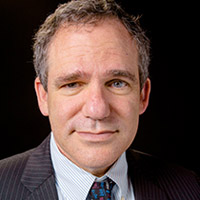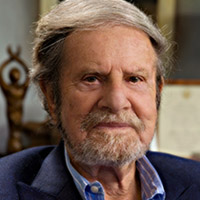Finding Value Investments in Private Equity

Finding Value Investments in Private Equity
Private investors and venture capitalists are always looking for the next great company, idea or product to put their money into, in order to reap great financial rewards down the road. However, how do private investors know where to find the true value investments that exist?
Experienced Investor
Jonathan Coslet is the Chief Investment Officer at Texas Pacific Group, also known as TPG capital, and he has been with the firm since its inception in 1993. He also serves on TPG’s Executive Committee. Before joining TPG, Jonathan started his career at Drexel Burnham Lambert and later moved to Donaldson, Lufkin & Jenrette. His formal education includes earning a BS in economics and finance from the Wharton School of the University of Pennsylvania where he was Valedictorian and later he received his MBA from Harvard Business School, where he was a Baker Scholar. Jonathan currently serves on the Board of the Stanford Institute for Economic Policy Research, the Stanford Children’s Hospital and the Stanford Medical Advisory Council. Jonathan and I discussed TPG’s state of private equity, as the company currently has almost $80 billion under its management. So I asked Jonathan how he finds the value investments?
Working on the Fringe
“At the end of the day, we have to be what I call fringe capital. Private equity as a whole is maybe 5 percent of the entire equity market capital ecosystem. The public markets are very efficient. They are getting more and more efficient every day and therefore the return on that capital is going to be tighter. We have to play around the fringes. We have to see things that others don’t see and we have to be willing to do things that others won’t do.” Jonathan said his firm has to do two things around the fringes. He said they have to have a different or uncommon point of view as an investor, which means they have to specialize, which includes both industry specialization and geographical specialization.
A Change for the Better
The other thing they need to do, according to Jonathan is to change or improve companies once they own them. “We have to do the hard work, like we did at Continental Airlines, like we did at Burger King, like we did with so many other companies along the way. That often means changing management. It often means employing new operational and strategic approaches to companies that for whatever reason aren’t being managed in a way that is aligned with the shareholders’ way.” Jonathan then explained that when you have a different point of view as an investor and you can change companies, you can outperform. “It’s hard. It takes a lot of work and it takes a lot of capabilities that you develop over time, but that’s what we do.”
Be Honest With Yourself
Jonathan concluded by saying that you have to be very selective. If you realize that you don’t see it in a very different way from everyone else or you don’t think you can really change it then maybe it’s not worth the investment because you can’t add a lot of value to it, as opposed to the ones where you do have a different point of view and where you do have a different strategic approach to operational improvement.
Contact Us here
How the Internet Became Commercial: Patterns in the Deployment of Technology | Shane Greenstein
About Shane Greenstein Shane Greenstein is a Professor of Business Administration at the Harvard School of Business and is the MBA Class of 1957 Professor of Business Administration. Professor Greenstein is also co-director of the program on the economics of digitization at The National Bureau of Economic Research. Professor Greenstein is the author of…
Approaching Star Trek Like Medical Technology | Joseph Deluca
Approaching Star Trek Like Medical Technology | Joseph Deluca This is just a short excerpt from the original interview, found “Here“. It contains over 23-minutes of interview along with a full transcript. We hope you enjoyed this excerpt form the interview of Joseph Deluca “Approaching Star Tek Like Medical Technology”. To receive our free newsletter,…
The Future of Healthcare | Joseph Deluca
About Joe DeLuca Joe has 30+ years of management, research, and advisory experience in health care, with a focus on enterprise performance management and affecting change through IT strategy and services. As Managing Practice Director, Joe provides advisory, project management, and leadership development services to health systems, hospitals, academic medical centers and independent physician…
Tad Taube – Advice to the Young Generation
About Tad Taube Bay Area businessman Tad Taube is the chairman of Taube Philanthropies and board president emeritus of the Koret Foundation in San Francisco. He is chairman and founder of the Woodmont Companies, a diversified real estate investment and management organization. At his alma mater, Stanford University, Mr. Taube is founder and advisory…



